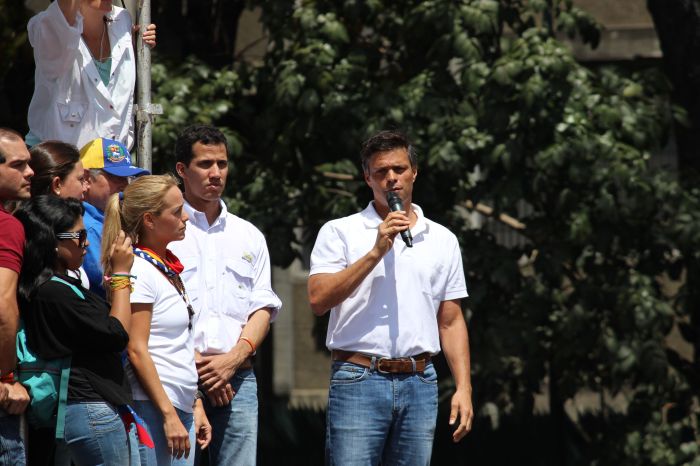Obsessed with Leopoldo's ethos



The smoking gun.
Leopoldo López has been attending hearings regarding his current judicial situation for the past few days. It’s been a week-long affair, which makes you wonder why they go through all this this trouble when, at least in Cuba or the Khmer Rouge’s Cambodia, quickie trials were swift.
While I have not been able to follow the nature of the proceeding, I took a look at the formal accusation presented by the eminent legal scholars representing the Prosecutors Office. The whole document is a masterpiece of Dadaist chavismo.
The government’s entire case rests on the analysis of the speeches made by Leopoldo, speeches in which he dared question the legitimacy of the authorities, and told people to march and stay on the streets to demand democracy. The Prosecutors then weave a legal theory that, taken to its logical conclusion, makes Leopoldo responsible for everything that has happened since the Venezuelan protest movement began in February.
To say that the accusation makes no sense does a disservice to the nonsensical. According to these eminent legal scholars, criticizing the government is now completely illegal, but it goes beyond that. Questioning the legitimacy of the government, that is, questioning what the government is and not really what it does, constitutes a criminal offense.
The other interesting aspect of this theory is that, according to the Prosecutor’s Office, politicians are now responsible for the acts their followers engage in, by the mere fact that their speeches may be tangentially related to what they do. All the Prosecutor needs is a semantic analysis of the speech and, voilá, charges are pressed. In that regard, López was responsible for whatever violence happened on February 12th, in much the same way that Hugo Chávez, say, is responsible for the violence unleashed by his followers (well, that part is not mentioned by the Prosecutors, but it follows clearly from their argument). It is, quite literally, the criminalization of free speech.
The whole document is well worth a read, although at 228 pages, it can get old after a while. Here was my favorite of many, many money quotes:
“We were also able to present to the court a very solid theoretical framework related to argumentative rhetoric and discursive studies of the image of the self in the discourse, establishing that citizen Leopoldo López possesses a discursive ethos that dominates and directly affects the ethos of the people he is addressing; as a consequence, everything the speaker says to his listeners has a strong influence, not only on their way of thinking, but also on the potential acts the listeners could engage in, and act in consequence of. On this point, the discursive strength and the ascendancy of citizen Leopoldo López as a political leader is unquestionable, because he has catalyzed the claims felt by a significant part of the Venezuelan population; therefore, what he says to his listeners is effectively transmitted, so much so that his listeners feel compelled and encouraged to follow through, in actions, with what he tells them they should do, even though he might not explain it to them explicitly.”
Caracas Chronicles is 100% reader-supported.
We’ve been able to hang on for 22 years in one of the craziest media landscapes in the world. We’ve seen different media outlets in Venezuela (and abroad) closing shop, something we’re looking to avoid at all costs. Your collaboration goes a long way in helping us weather the storm.
Donate




